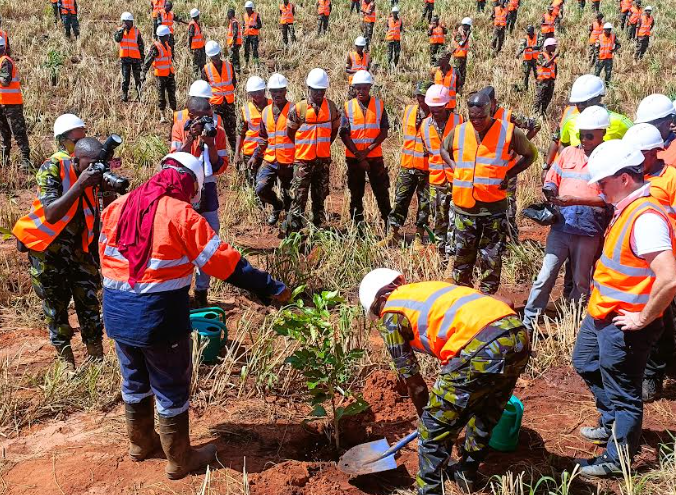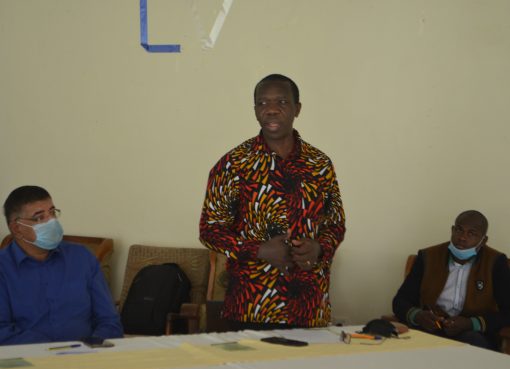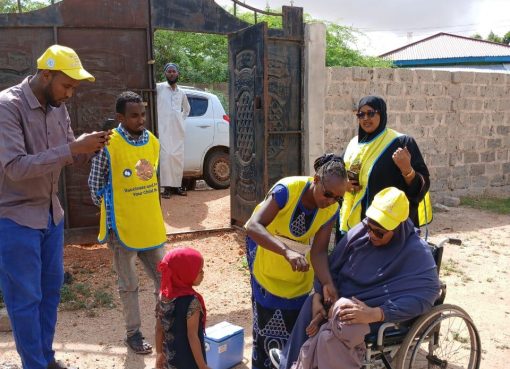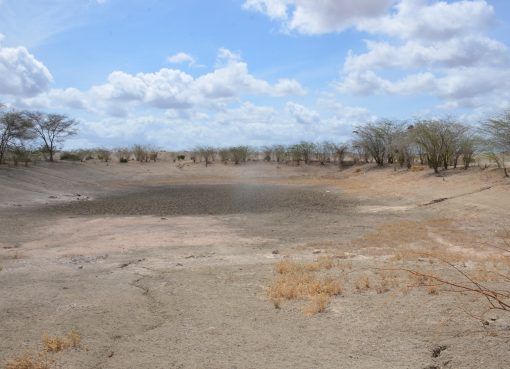Kwale based Australian mining firm Base Titanium has stepped up environmental management practices to minimize the impacts of mining on the environment and protect biodiversity.
Base Titanium’s rehabilitation efforts focus on reforestation, increasing biodiversity and developing agricultural opportunities for the host communities.
The mining firm is expediting the restoration of mined-out areas following the depletion of mining reserves, having announced that it would cease mining operations by December 2024.
The company has been mining rutile, ilmenite and zircon, all precious minerals since 2013, accounting for approximately 65 percent of Kenya’s mining industry by mineral output value.
It is also recognized as a flagship project under the Vision 2030 national development blueprint.
The company is also carrying out re-grassing in the mined out areas to make them suitable for the growth of flora and fauna, once the mining activity is completed.
Rehabilitation of mined-out areas begins by shaping the area into dunes similar to those that existed before mining to ensure natural drainage areas are followed.
After that, shaping and topsoil spreading, manuring and mulching is done to enhance soil organic matter to prepare for vegetation cover.
Base Titanium General Manager for External Affairs Simon Wall says land rehabilitation and reclamation formed an important part of the mining lifecycle as it enabled safe and productive future uses after mining operation ceases.
Wall stated that the restoration activities in the mined out sites would ensure the land is safe, stable and back to a sustainable, usable condition.
The External Affairs General Manager says for Base Titanium mine closure planning started even before the company began to mine ‘as we often rehabilitate land in phases while mining operations continued’.
He also disclosed that the mining firm was on the tail end of its operations after the depletion of the mineral resources and was set to cease mining operations by December 2024.
“Our land rehabilitation and restoration efforts are essential in restoring mined-out areas to sustainable ecological, economic, and social conditions,” he said, adding that mining represents a transient use of the land.
The top mining official noted that rehabilitating degraded mining sites and preserving forests and biodiversity would in the long run restore ecological balance.
“For us, environmental restoration is a key priority and we are committed to restoring the mined-out sites ensuring it supports biodiversity and sustainable use for future generations,” he said.
Wall was speaking to the media during a tree-planting exercise led by soldiers from the Kenya Navy at the South Dune area of the Kwale mine site.
He says Base Titanium recognizes the Kenya Navy as a vital partner and expressed interest in environmental collaborative projects with them as the mining firm prepares for a post-mining land use.
Wall says the company is dedicated to environmental stewardship in restoring ecological equilibrium and facilitating sustainable closure of mining operations.
He said the mining firm has so far successfully rehabilitated over 500 hectares of land in the South and Central Dunes that has been impacted by mining.
“Planning for mine site closure, decommissioning and rehabilitation is a critical component of environmental management in the mining sector so as to minimize adverse impact on the environment and the broader society,” he said.
Wall says the Base Titanium has indigenous tree nursery with over 280 indigenous plant species which are key in the reforestation of parts of the mined-out areas.
He says more than 800 trees from Base Titanium’s nursery have been planted in the mined out areas to start improving the biodiversity of the area and return the land to what it used to be or even better before mining operations started in 2013.
On his part, Colonel Benson Karuimbo, Commandant of the Mombasa based Kenya Naval Training College (KNTC) says the tree planting exercise at the mined-out sites was part of a broader tree planting campaign launched in preparation for Kenya Navy’s 60th anniversary celebrations in December 2024.
Col. Karuimbo said the tree planting efforts were under the auspices of the Environmental Soldier Programme by the Kenya Defense Forces, noting that mitigation of climate change was a collective effort.
The Colonel said Kenya Navy day is celebrated annually on December 14 to mark the establishment of the Kenya Navy, while honouring its accomplishments over the years.
“We are happy to take part in efforts to increase the capacity to address environmental issues associated with the mining sector,” said Col. Karuimbo.
He said the environmental soldier initiative was part of the national tree growing programme that seeks to raise the country’s tree cover to 30 per cent both as a livelihood and climate action effort.
By Hussein Abdullahi





